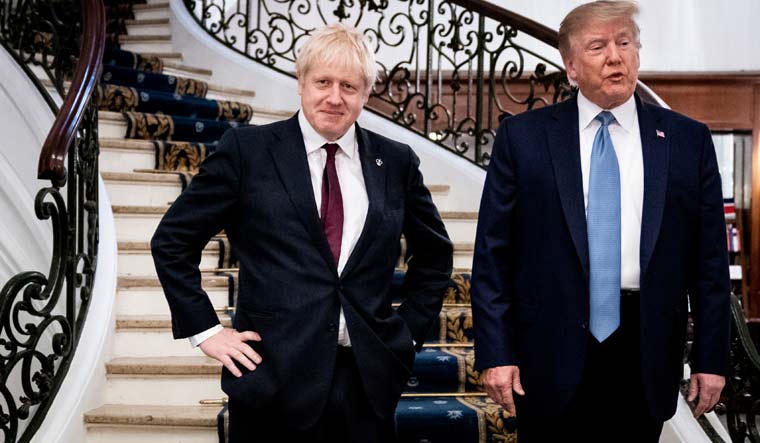Just as British PM Boris Johnson readies himself for elections December 12, he will have a visitor in US President Donald Trump. Trump will be visiting Britain for NATO's 70th-anniversary summit next month, the White House said Friday. Trump will visit the country from December 2 to 4 with wife Melania. The couple will attend a NATO NATO gathering and a reception hosted by Queen Elizabeth II.
PM Johnson in the meantime will be seeking to retain power in an election that has been dominated by Brexit. President Trump has voiced strong support for the divisive plan.
Johnson, according to analysts is taking a gamble by trying to create a new parliamentary majority behind the withdrawal deal he agreed to Brussels on October 17 and tried to rush with at the parliament.
Though Johnson had taken a 'do or die' stance on Brexit, Britain was forced to ask for an extension after failing to get a deal through parliament.
During the summit, Trump is likely to review NATO's unprecedented progress on burden-sharing, including adding more than $100 billion in new defence spending since 2016. French President Emmanuel Macron this week said the bloc was undergoing "brain death," to which, Merkel said his comments were "drastic" and US Secretary of State Mike Pompeo insisted NATO was "important, critical." Turkish President Recep Tayyip Erdogan, while at the White House meeting Trump called Macron's statements "unacceptable".
Erdogan's visit to Washington also highlighted one of the many challenges facing the Alliance: Turkey's purchase of Russian anti-aircraft missiles.
Dissonance can be expected over Trump's sometimes bruising campaign to get other NATO members to increase defence budgets. Trump has complained that the other allies were not putting enough funding into the alliance and are too reliant on the US military's security umbrella.


